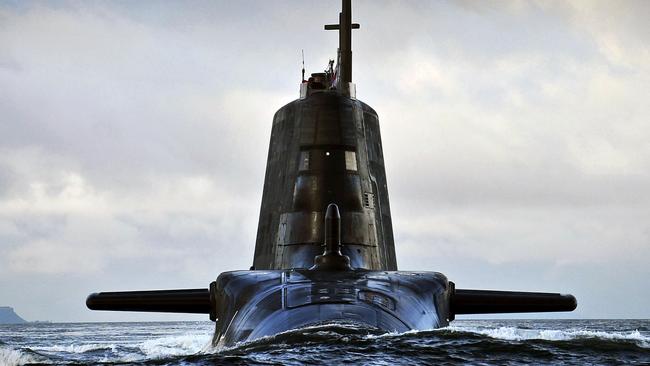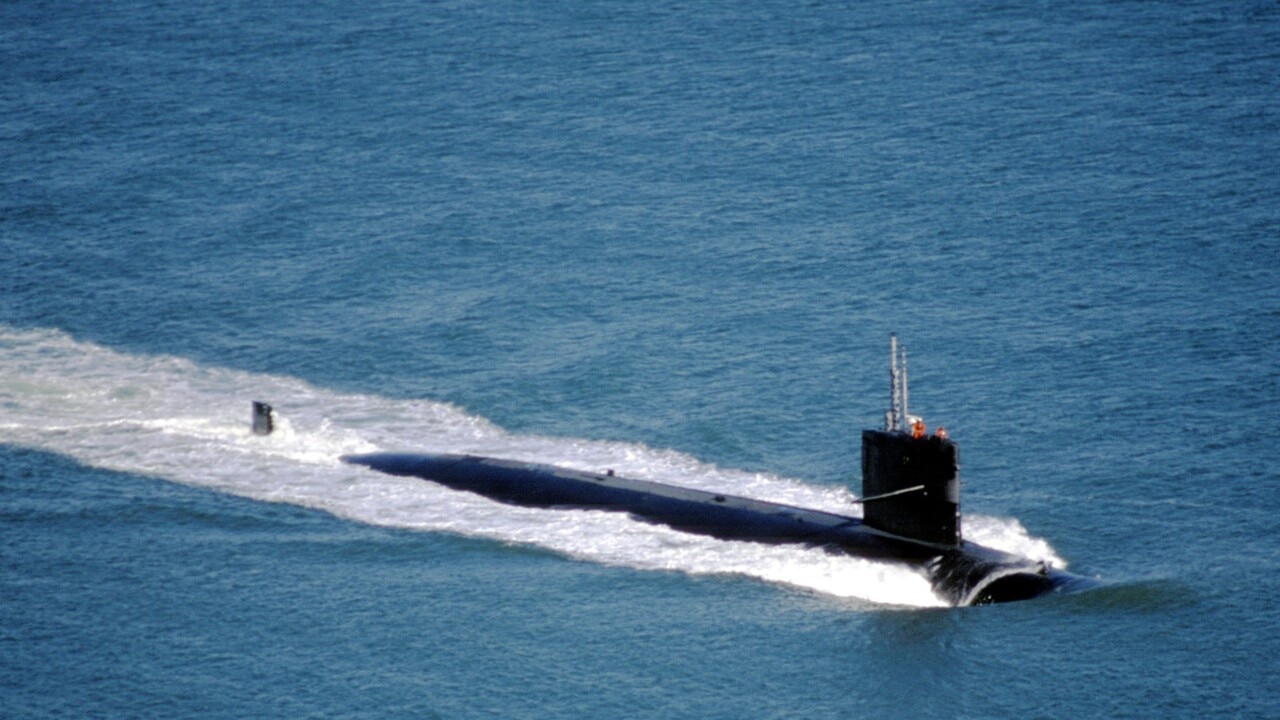Australia won’t buy nuclear submarines from US, UK: Arthur Sinodinos
US Ambassador suggests the vast bulk of the new fleet promised under the AUKUS security pact will be built in SA.

US Ambassador Arthur Sinodinos has ruled out buying nuclear submarines built mainly in the US or UK, suggesting the vast bulk of the new fleet promised under the AUKUS security pact would be built in South Australia.
Amid speculation among experts about where, and how much, of the eight promised nuclear submarines would be built in UK or US shipyards, Mr Sinodinos said the “intention” was to build them … “to an existing design that is calibrated for our scale and the levels of complexity that we can handle”.
“This is not about cannibalising American and British submarine fleets or taking the next one that comes off the assembly line or anything like that,” he said, speaking at the Hudson Institute on Tuesday.
“This is about developing a capability, which augments what is available to allies and partners in the region,” he added.

Defence experts have suggested the quickest way for Australia to obtain a nuclear submarine would be to buy the next British Astute class submarine due to be completed in the UK, given US shipyards were already too busy with US navy submarine orders, or lease or buy a retiring US nuclear submarine.
Mr Sinodinos, who will mark two years as US ambassador in February, said the government hoped to sort out the details of construction sooner than the 18 month period foreshadowed in the AUKUS agreement with the UK and US.
“We‘re hoping to do it as quickly as possible and not have to use the full 18 months,” he said, speaking in an online panel alongside the chief executive of the Hudson Institute, a foreign policy think tank, John Walters.
“We‘ve got people coming into the embassy, help with this work here in Washington, the White House, the Pentagon is staffing up as well. The UK is doing the same thing. So watch this space,” he added.
The ambassador’s remarks will reassure submarine workers in South Australia, hundreds of whose jobs have been thrown into doubt after the very public scrapping, infuriating France, in September of the 2016 contract to build 12 French-designed conventional submarines.
It will also raise questions about the capability of Australian submarine industry and workforce, which last built a submarine in 2003.
The Ambassador said the submarines would enable Australia to “project power”, but shouldn’t be seen as a threat to China, increasingly seen as a threat to US dominance in the Asia-Pacific.
“We want to move on. We‘re happy to have a dialogue, a dialogue without preconditions. And we want to just normalise relations again. This is not about us seeking to regime change or anything like that,” Mr Sinodinos said.
China has steadily escalated a trade war with Australia after the government called for a global inquiry into the origins of Covid-19 early last year, putting a series tariffs on Australia exports including timber, barley, coal and lobsters.
“We want to be able to … project our power further up rather than taking an approach that all our defence has to be a defence of the mainland,” Mr Sinodinos said, pointing out defence spending was increasing towards 2.5 per cent of GDP.
“We‘re doing that because we want to be more proactive in shaping the environment in our region … the challenge for us in the region today is not to sit back and be the passive recipient of whatever may be happening, but seeking to shape events,” he added.




To join the conversation, please log in. Don't have an account? Register
Join the conversation, you are commenting as Logout